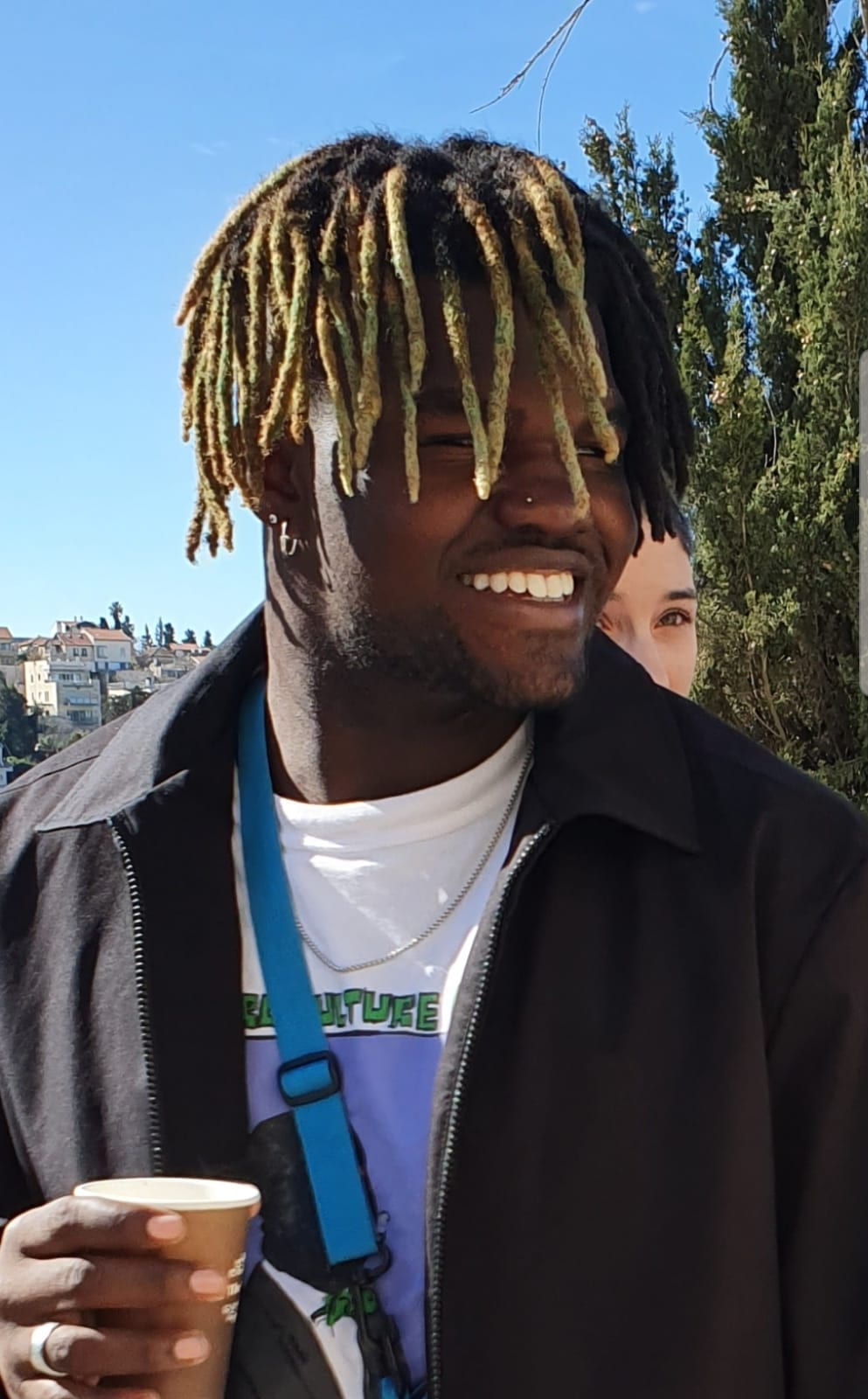Enlarge

After a winter break which involved volunteering at an orphanage in Tanzania, and visiting the location where his mother had studied abroad some 30 years ago, Bakari Young-Smith was looking forward to heading to NYU Shanghai for his spring semester. But one week before his planned departure, the rising junior at NYU’s Rory Meyers College of Nursing, decided to make alternative plans following the COVID-19 outbreak in China, and the suspension of in-person courses at NYU Shanghai.
After consulting with his advisor at NYU’s Office of Global Programs, Young-Smith decided to enroll instead at NYU Tel Aviv, and then returned home to Virginia, unpacked the bags that he had prepared for China, repacked them for Israel, and then departed for NYU Tel Aviv — all within a few days’ time.
Marrying his academic background in nursing with his interest in gaining “a new experience in an entirely new setting,” IIana Goldberg, internship coordinator and instructor at NYU Tel Aviv, arranged for Young-Smith to intern with NALA, a non-profit that works to combat tropical neglected tropical diseases in Ethiopia, and focuses on improving hygiene and sanitation practices. Yet after spending roughly half of the semester conducting research on health practices among communities in Ethiopia’s Southern Nations, Nationalities, and Peoples’ Region — the global spread of COVID-19 upended internships and course work, at least temporarily, and sent Young-Smith and his cohort back home.
Despite the upheaval, many NYU Tel Aviv students chose to continue their internships remotely. “I think that what helped make the students resilient in the face of the disruptions” explained Goldberg, “was the fact that we had sufficient time at NYU Tel Aviv to build a sense of community, throughout the student body, with the efforts of the whole staff, student life director, and resident life assistants […] the whole fabric of support helped everyone remain calm and rational and able to see the larger picture.”
While the internship students had the option to complete a written career exploration project in lieu of continuing their internship projects remotely, Goldberg explained that many students “were very resolute about sticking to their internships. For example, one of our students has had a life-long interest in fashion and retail and was initially crestfallen when told the academic center was closing, but his employers were open to having him continue his responsibilities while working remotely. Another student, studying documentary production at Gallatin actually increased his attendance at the internship to more weekly hours, and the company sent him a hard-disk with materials and set him up to work remotely with the film editor.”
Following his move back to the US, Young-Smith chose to forge ahead with his internship with NALA because he felt there was more he could do. His work shifted to initiatives to spread critical public health messages about mitigating the spread of COVID-19 to remote communities in Ethiopia. Taking an innovation-oriented approach, he worked on low-tech ways — beyond the traditional routes of radio, television and internet — to engage isolated communities in disease-preventing behaviours.
Together with his local counterparts, he has helped to launch effective public health campaigns, including printing public health messages on toilet paper, and coordinating neighbor-to-neighbor outreach. For Young-Smith, examining how communities in Africa are responding to COVID-19 has “broadened my global perspective.”
“Having a chance to develop this kind of transglobal solidarity,” said Goldberg, “by working from afar for local causes will be a valuable experience not only professionally but as a global-civic achievement.”